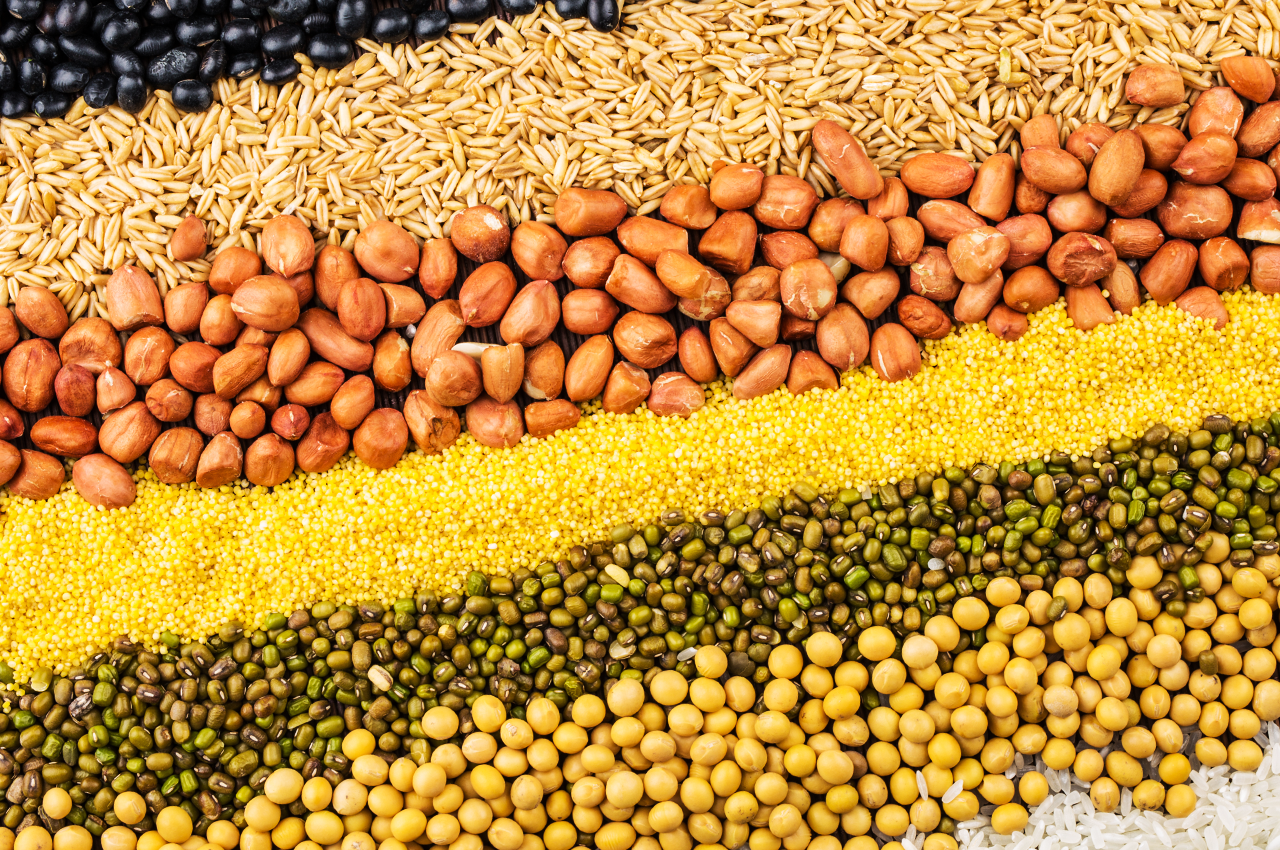Grains are the seeds of grass-like plants called cereals. Common grains include rice, corn and wheat. Others are oatmeal, millet, popcorn, quinoa, buckwheat, whole rye and barley.
Wholegrains have three parts: the brain (the nutritious outer layer), the germ (the seed’s nutrient-rich embryo) and the endosperm (the germ’s food supply which is packed with starchy carbs).
Wholegrains have a range of health benefits, so unless you have celiac disease or another health reason to avoid them, you might not want to miss out.
Get to know grain
It packs a lot of fibre
Adults need at least 25 to 35 grams of fibre daily for their body to function at its best. Wholegrains contain both soluble and insoluble fibre. Fibre offers many health benefits and is known to help keep you fuller for longer.. Not all grains are high in fibre though, so stick to ones like oats, barley and bulgur which can help you reach your daily quota.
It keeps you regular
If you’re struggling to stay regular, wholegrains could help. The fibre found in wholegrain contains a lactic acid which promotes the growth of good bacteria in the large intestine. This bacteria helps with digestion, ups your body’s immune system and promotes nutrition absorption. The fibre also helps prevent constipation, diarrhoea and the pain that comes with it.
It keeps the kilos away
Keeping your weight in check is easier if you include wholegrains in your diet. Wholegrains make you feel fuller for longer because they take longer to digest. This creates a satiating effect which means you’re less likely to reach for more food after a meal containing wholegrains. You’re also more likely to have smaller portions at every meal. To reach maximum fullness, include rye or quinoa in your meals.
It boosts your immune system
Wholegrains boast a range of vitamins and minerals that keep you healthy and lower your risk for certain chronic conditions. These include iron, which helps move oxygen throughout your body, and zinc, which ensures your immune systems stays in good condition. Grains are also rich in magnesium which helps to build strong bone, and immune-boosting B vitamins like thiamine, riboflavin, folate and niacin.
It lowers your blood pressure
Besides being packed with a range of vitamins, wholegrains have heart benefits too. A study found a 19% lower risk of high blood pressure among men who regularly ate wholegrains. The researchers concluded that wholegrains helped with weight control, which in turn lowered the stress placed on blood vessels.
Go gluten-free
If you have a gluten sensitivity, it may seem difficult to include grains in your diet, but it’s easier than you think. Here are some healthy, gluten-free wholegrain swaps.
- Brown rice. Promotes a healthy heart
- Non-GMO corn meal. Contains fibre and antioxidants.
- Buckwheat. Filled with nutrients and antioxidants.
- Oats. Helps to keep you full.
- Quinoa. Packed with protein, vitamins and minerals.
- Sorghum. Has B vitamins, iron and dietary fibre.
References:
- https://www.healthyeating.org/Healthy-Eating/All-Star-Foods/Grains
- https://www.mayoclinic.org/diseases-conditions/high-blood-pressure/expert-answers/whole-grain-foods/faq-20058417
- https://draxe.com/gluten-free-grains/
- https://www.healthline.com/nutrition/whole-grain-foods
- https://www.healthline.com/nutrition/grains-good-or-bad#section7

